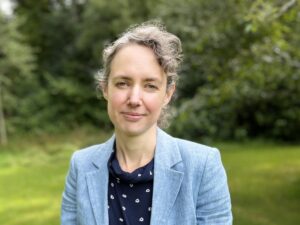Other project reports and deliverables
In line with a commitment to Open Science, we make most of our project outputs publically available. Some deliverables are not shared here whilst we prepare academic outputs for publication – but please contact us if there is an area of work that you wish to know more about.
- In December 2025 we produced an interim milestone report ‘
Early insights on whisky producer engagement with environmental sustainability‘. This is milestone 4.2, arising from WP4, and will help shape our further engagement with that sector and finalisation of the results in the last year of the project.
- In March 2025 we produced a report on ‘Views on Natural Capital and Evidence Use in Policy Processes associated with Scotland’s Agricultural Reform Programme‘. This is Deliverable 2.2 from our project, arising from our work on policy processes in WP2.
- In October 2024 a report on ‘Community benefit options for natural capital markets in Scotland’ was launched, connecting insights from this project as well as related UKRI and European Horizon related work by SRUC.
- In September 2023 we drafted a document on our rationale and plan for focussing on the Scotch whisky sector in order to understand how Natural Capital can unlock private-sector investment in nature-based solutions. This is Milestone 4.1 of our project, you can read the report by clicking on the link here.
- In September 2022 we established our protocols for our searches of examples of natural capital being used in policies and in finance (these protocols are respectively milestone 1.1 and milestone 1.2 from our project). Click on the hyperlinks to the Milestone names for more information about these search plans. As of summer 2023 preliminary results from both reviews have been produced – please contact us if you’d like to know more.
- In summer 2022 we carried out a stakeholder analysis to help inform this project’s plans – this was the first milestone from our project, available here.
Datasets and Open Science
Open Science – the idea that the scientific process and its outputs should freely available and widely accessible – is important to us and also a requirement of our funder. However, most of the data produced by this project – such as interview transcripts – contains personal information that could be used to identify people. Honouring commitments to their confidentiality outweighs the desire to make data available. Therefore, this project has not released many raw datasets. However, the methods used to produce or work should be transparent in our deliverables and papers above, and please contact us if we are not clear or if you would like more information. We continue to explore the possibilities for redacting interview and workshop transcripts that still retain information value.
- The dataset for the 2023 survey of policy-makers (see 2026 ecological economics paper above) has been anonymised and is available on zenodo at https://doi.org/10.5281/zenodo.12205589

